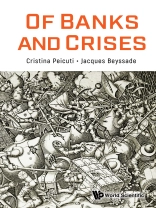‘It is a familiar remark that only ‘the rich can borrow, ‘ and the experience of every day seems to prove it. Yet the poor also may have need of credit, even more than the rich. How, then, can they obtain it? This problem is easily solved by cooperation. An isolated laborer or artisan, no matter how honest or industrious he may be, cannot furnish sufficient guarantee for a loan. Sickness, loss of work, and death, may at any time overtake him and make it impossible, despite his best intentions, to pay back what he has borrowed. But if laborers or artisans to the number of ten, a hundred, or a thousand, are grouped in an organization, and held together, if need be, by the ties of collective responsibility, the security they have to offer will be considerably greater, and they will find it much easier to obtain credit without falling into the hands of usurers. The dues which are paid to such an organization, moreover, will ultimately build up to a large amount of capital which the organization can lend to its members.’
Charles Gide Principles of Economic Policy (1984), Boston USA: DC Heath & Co, publishers translated by C Williams A VerditzA professor of economics, who predicted the subprime mortgage crisis in her doctoral thesis at the Sorbonne between 2006 and 2009, and the general secretary of a major bank analyse the role of banks in triggering the Great Depression and the Great Recession, as well as in helping companies out of the COVID-19 crisis and into the New Environmental Cycle. The book focuses on the dynamics of financial crises that led to the Second World War, Brexit and Donald Trump’s presidency. It also chronicles the metamorphosis of the banking profession over the centuries and its reinvention by cooperative banks by and for their customers.
Contents:
- About the Authors
- Foreword
- Introduction: Crisis Raising Many Questions
- What Crisis?:
- 1929, 2008 and 2019: Damning Repetitions
- Great Depression, Great Recession: Banks Guilty of Triggering the Crisis
- COVID-19 Crisis: Banks Have the Capacity to Finance Recovery
- Banks: The Cornerstone of the Recovery?
- In the Cold Light of Day:
- France: Centuries of History … and of Debt
- Out of the Great Depression into a World War
- After the Great Recession, a Global Revolt Against the Established Order
- Will There Be a Global Change Post-COVID?
- Banks: Mirror of Our Society?:
- The Profession’s Metamorphosis
- Cooperative Banking: A Profession Reinvented by and for Its Customers
- The Illusion of Control
- Seven Proposals for a Healthy Recovery:
- Rethinking Public Health Policy
- Repositioning Europe Centre Stage in the World
- Loosening the Regulatory Brakes
- Smarter Regulations
- Financing the New Environmental Cycle
- Financing Building Renovation
- Beyond Our Borders
- Conclusion
- Bibliography
- Name Index
Readership: Academic/researchers, postgraduate students, undergraduate students, bank and insurance employees, government, central banks and general readers, All students in business and management.
‘Poor bankers! Poor economists! You won’t see people at their windows and on their balconies clapping for members of these two professions. Economists are decried for never having anticipated crises. Blame is levelled at bankers, perceived as blind to the obvious and driven by greed. Given the constant trial by media to which the two professions are subjected, Cristina Peicuti’s and Jacques Beyssade’s book gives the floor to the defence. It is not because the authors are beholden to corporate interests, but because they are motivated by their desire to understand and take action. The relevance of these criticisms, occasional or recurrent, is not being challenged. The authors’ purpose is to analyse the behaviours and mistakes that may have given rise to these reproofs, and identify changes that would enable both professions to contribute more effectively and in a timely manner to the common good.’ — André Comte-Sponville Philosopher, and author of the worldwide bestseller A Small Treatise on Great Virtues: The Uses of Philosophy in Everyday Life
Key Features:
- Two experts analyse three major economic crises of the last century and the role banks can and do play in anticipating and mitigating such crises, including the recent COVID-19 crisis and its lasting impact
- The book is recommended reading for lecturers and students in business schools












